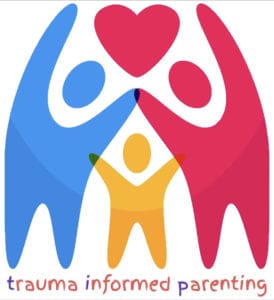Lorraine E Murray, founder of Niños conectados, interviews Suzanne Scott, founder of the charity Trauma Informed Parenting Escocia about Mindful Trauma-Informed Parenting 
- What is Trauma-Informed Parenting?
- Qué ¿Qué diferencia tiene para una persona joven? if their parent is trauma-informed
- Qué diferencia hace to the parent if they can be trauma-informed
- ¿Cuáles son tus 3 mejores consejos? for people to practice to be trauma-informed parents
- ¿Puedes darnos un practical (real-life) ejemplo de una situación que utiliza habilidades TIP?
- Consejos sobre la duración de un parto traumático puede afectar a un niño y dónde buscar consejos para ayudar a sus hijos si han pasado por un parto traumático.
Looking for Mindful Tips for Trauma Informed Parenting?
 Lorraine E Murray is founder of the accredited, international Connected Kids program, author of 3 books about mindful skills for young people and a foster mum of 17 children. She combines her professional experience of the care system and how we can use trauma-sensitive skills and energy awareness tools to help young people in the care system, and the people who work alongside them.
Lorraine E Murray is founder of the accredited, international Connected Kids program, author of 3 books about mindful skills for young people and a foster mum of 17 children. She combines her professional experience of the care system and how we can use trauma-sensitive skills and energy awareness tools to help young people in the care system, and the people who work alongside them.
What does Trauma informed mean?
Trauma-informed care is an approach that recognizes the widespread impact of trauma and understands how it can affect people’s behaviour, emotions, and ability to engage. Trauma can result from events like abuse, neglect, violence, loss, or other overwhelming experiences. A trauma-informed perspective doesn’t focus on “what’s wrong with you?” but instead asks, “what happened to you?”
Being trauma-informed means creating safe, supportive environments where people feel seen, heard, and respected. It involves recognising signs of trauma, avoiding re-traumatisation, and empowering individuals in their healing journey. This approach emphasises compassion, patience, and collaboration rather than judgment or punishment.
In practice, trauma-informed care involves understanding how trauma affects the brain and body, building trust through transparency, and promoting physical and emotional safety. It also values peer support and recognises cultural, historical, and gender-based differences in how trauma is experienced.
Whether in schools, healthcare, social services, or everyday interactions, being trauma-informed means approaching others with empathy and understanding. It helps foster resilience and healing by prioritising relationships, choice, and empowerment. This approach benefits everyone—not just those with known trauma—by creating more respectful, responsive, and inclusive communities




